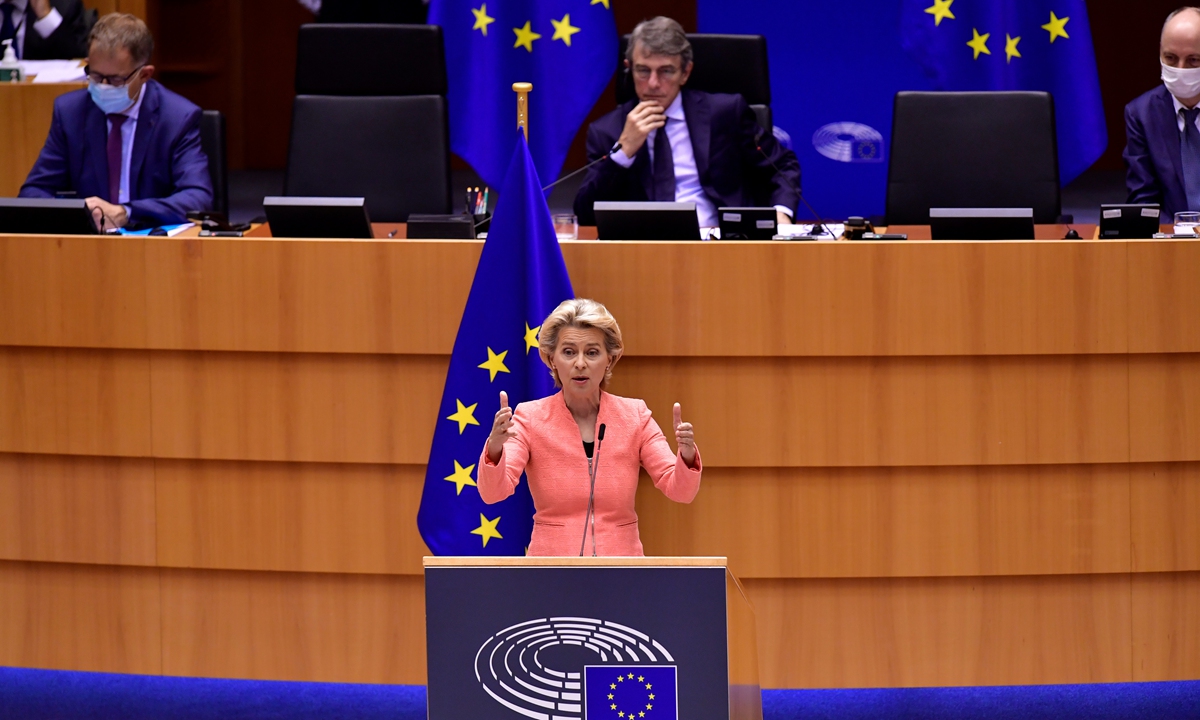EU sanctions three firms for breaking UN arms embargo on Libya
Source: AFP Published: 2020/9/22 15:33:40

European Commission President Ursula Von Der Leyen addresses her first state of the union speech during a plenary session at the European Union Parliament in Brussels, Belgium on Wednesday. The speech, delivered to MEPs, traditionally sets out the European Commission's priorities for the coming year. Photo: AFP
The European Union (EU) on Monday imposed sanctions on three companies - one Turkish, one Kazakh and one Jordanian - for breaching the UN arms embargo on Libya, drawing an angry reaction from Turkey.At a regular meeting in Brussels, EU foreign ministers signed off on the measures, which freeze any EU assets held by the companies, cut them off from EU finance markets and bar them from doing business with anyone in the bloc.
Two individuals were also hit with sanctions for human rights abuses in Libya, where the UN-recognized government in Tripoli has been under attack from strongman Khalifa Haftar, who runs a rival administration in the east.
The EU has a naval mission operating in waters off Libya which is tasked with policing the embargo and collecting intelligence on violators.
"These new listings show the EU's strategic use of its sanctions regime and ability to react to developments on the ground in support of the political process and to deter past and present perpetrators from further violations," the EU said in a statement.
Libya has endured almost a decade of violent chaos since the 2011 NATO-backed uprising that toppled and killed veteran leader Muammar Gaddafi.
But there have been signs of progress, with representatives from the two sides meeting for peace talks in Morocco, announcing a surprise cease-fire and pledging national elections.
"After many months I see a reason for cautious optimism. There is a positive momentum; there is a cease-fire and we need to use it," EU diplomatic chief Josep Borrell said as he arrived for the foreign ministers' talks.
But the targeting of a Turkish company risks inflaming already tense relations between Ankara and the EU following a recent flare-up in the eastern Mediterranean over oil and gas reserves.
The EU says the company, Avrasya Shipping, operates a vessel called the Cirkin, which it says breached the arms embargo by transporting military material to Libya in May and June 2020.
AFP
Posted in: EUROPE